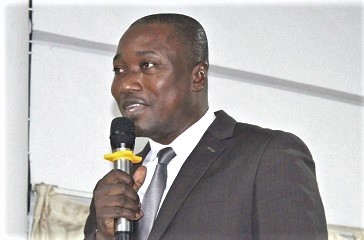
Nation spends $230m on injuries - Dr Ofori-Boadu discloses
The country spends close to $230 million every year in treating injuries and trauma-related conditions.
Aside from that, the nation currently has 54 orthopaedic and trauma surgeons who managers of the health system consider not enough to handle the increasing cases.
The amount, according to the acting Director of the Institutional Care Division of the Ghana Health Service (GHS), Dr Lawrence Ofori-Boadu, was huge and an indication that road traffic crashes, which were the major contributors to injuries and trauma, were overwhelming for the country.
Inadequate specialists
“GHS can barely count the number of orthopaedic and trauma surgeons within our facilities. Statistics show that many Ghanaians suffer from trauma-related injuries and at least four people die every day to road traffic accident, with associated trauma injuries.”
“When we see an increasing trend in the cases of injuries and trauma, we get worried about the numbers in correlation with the number of orthopaedic and trauma surgeons available and how and where we can access their services,” Dr Ofori-Boadu noted.
According to the Orthopaedic Association of Ghana, the country has only 54 orthopaedic and trauma surgeons and Dr Ofori-Boadu added that most of them were in the teaching hospitals in the country.
“We lack trauma and orthopaedic surgeons in our regional hospitals,” he said.
Dr Ofori-Boadu disclosed this when he spoke on behalf of the Director-General of the GHS, Dr Patrick Kuma-Aboagye, at the second annual general and scientific meeting of the Orthopaedic Association of Ghana last Friday.
Statistics
Dr Ofori-Boadu provided data from the GHS showing that in 2019, transport-related injuries alone accounted for about 93,379 cases that were reported.
In 2020, the figure increased to 111,931 cases, while in 2021, transport-related injuries recorded was 125,673.
For home-related injuries or household injuries, he said 119,613 cases were recorded in 2019; 240,543 cases recorded in 2020 while that of 2021 was 116,073.
He said occupational injuries also recorded increases.
Lack of orthopaedic surgeons
Dr Ofori-Boadu said under the government’s Agenda 111 Hospitals Project, the facilities at the regional and district levels would have trauma and emergency centres but asked: “Who would man them?”
“We need orthopaedic surgeons to complete this exercise. We need the Orthopaedic Association of Ghana to build capacity of the peripheries through training,” he urged.
Training
The Rector of the Ghana College of Physicians and Surgeons, Professor Richard M. K. Adanu, also pointed out that the number of orthopaedic and trauma surgeons in the country was woefully inadequate.
He pointed out that the creation of the Faculty of Orthopaedic and Trauma Surgery at the college would help increase the numbers.
Prof. Adanu stated that the GHS and the government looked at the output before sponsoring programmes and if they continued to train graduates who ended up concentrated in two or three facilities in the country, then the government would not see it necessary to spend on training more people in that field.
The Rector, therefore, called on the association to open two more training centres outside Accra and Kumasi in order to increase their numbers.
Challenges
The theme for the programme was: “Challenges of orthopaedic and trauma care in Ghana: the way forward”.
Touching on the challenges of orthopaedic and trauma care in the country, a Senior Lecturer at the Department of Surgery, School of Medicine of the University of Health and Allied Sciences (UHAS), Dr Joseph Korpisah, explained that the issue of inadequate orthopaedic and trauma surgeons in the country had never been about doctors not interested in specialising in that field, but rather about the lack of training centres.
“We have only Komfo Anokye Teaching Hospital in Kumasi and the Korle Bu Teaching Hospital in Accra as the training centres,” he said.
Another challenge was the lack of orthopaedic equipment in the hospitals which impeded the delivery of excellent work, Dr Korpisah stated.
